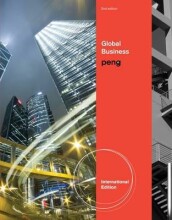European integration
27 important questions on European integration
What is the Schuman plan?
What are the treaties of Rome?
What is the Single European Act (SEA)?
- Higher grades + faster learning
- Never study anything twice
- 100% sure, 100% understanding
What is the Maastricht treaty?
What is the European Constitution?
What is economic transition?
What are the 3 primary aims of economic reform programmes?
2. Stabilisation
3. Privatisation
What fourth aspect was added to the reform programmes after they kept failing?
What is mutual recognition?
What is a harmonised sector?
What is the subsidiary principle introduced in the treaty of Maastricht?
Why is the single market for services harder to implement than for goods?
2. Most services need form of local delivery
What is the Bologna process?
What is the Schengen Agreement?
What are the Maastricht Criteria?
1. Annual budget deficits can't exceed 3% of the GDP
2. Public debt under 60% of the GDP
3. Inflation rates within 1.5% of the 3 lowest rates in the EU
4. Long-term interest rates within 2% of the 3 lowest rates in the EU
4. Exchange rate stability
What are the 4 benefits of the Euro?
2. Direct and transparant price comparisons are possible -> channeling more resources towards competitive firms
3. Elimination of exchange rate risk -> businesses face less risk when contracting/investing in other countries
4. Imposes monetary discipline
What are the 3 disadvantages of the Euro?
2. Limits on fiscal policy, notably deficit spending
3. De facto shared responsibility to support weaker member countries
What is an optimal currency area?
What is the European Council?
What is the European commission?
What is the European Parliament?
What are the things needed for a counter-attack?
2. Motivation to react to an attack
3. Capability to fight back
What is explicit collusion?
What is a cartel?
What is tacit collusion?
What is a leniency program?
What drives the urgency for sustainability?
2. Rising levels of population, poverty and inequality
3. NGOs as monitors and enforcers of social standards
The question on the page originate from the summary of the following study material:
- A unique study and practice tool
- Never study anything twice again
- Get the grades you hope for
- 100% sure, 100% understanding
































